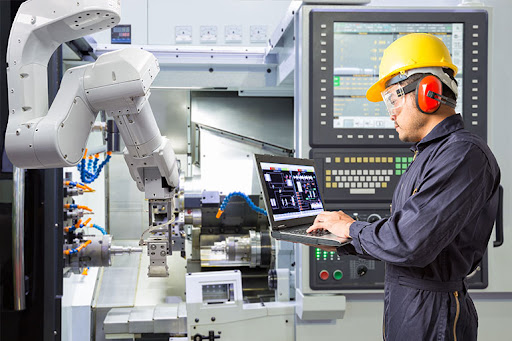Adoption of Industry 4.0 paves the way for growth in manufacturing
by Dr Troy Coyle, CEO, HERA
Our world is changing.
Climate change and pandemics have garnered much attention but there is another revolution underway. One that is likely to change the very fabric of the way we live and work. It is called Industry 4.0 and is the next stage of the industrial revolution.
In 1794, the industrial revolution forever changed manufacturing with the introduction of the mechanical loom.
Things changed fast.
A mere hundred years later the first production line enabled mass production. Jump forward another hundred years and we witnessed the birth of industrial robots, that together with advances in electronics and IT have automated much of the manufacturing process.
Today, we are entering a new age – Industry 4.0 – the age of cyber-physical systems; the marriage of physical production, and smart digital technology.
It is not sci-fi. It is not the realm of filmmakers and futurists. Change is happening now and promises to transform industry as much, if not more so than, the introduction of water, steam, and electricity did in the past.
What is Industry 4.0?
In essence, Industry 4.0 enables companies to have better control and understanding of their business. The new technologies save time, boost productivity, and reduce waste.
A panacea for considerable and sustainable growth.
A quick search of the internet will provide you with a mountain of anachronisms – IoT, IIoT, CPS, AI, Big Data – to explain Industry 4.0. It is a catch-all term that encompasses all the technologies that enable businesses to collect and analyse data to help automate and streamline their systems and processes.
It promises faster response times, increased efficiency and profits, and better quality products at a lower cost.
Impact of new technology
HERA’s latest report in collaboration with BERL, ‘Modelling the potential economic impacts of Industry 4.0 in New Zealand’, uses high-level CGE modelling to analyse the impact of the adoption of new technologies in manufacturing, on the New Zealand economy, over the next five years.
It suggests that the economic gains are likely to be significant.
- GDP will be boosted. Total GDP gained over the five years could be as much as $8 billion and, even their most pessimistic forecasting revealed a $4 billion increase, compared to the base scenario.
This is roughly equivalent to the value of the recent trade agreement with the UK.
- Wages are likely to increase. An increase of almost $3.5 billion over the five years. The benefits will be felt most by those in the middle-income bracket and are marked by higher incomes and consumption.
- Government spending can evolve. With more money, the government can invest in large-scale projects.
The full report can be viewed here.
A real-world example
D&H Steel has transformed its traditional business and gained real-world outcomes through the adoption of new agile technologies.
As Wayne Carson, Managing Director says, “We recognised we were creating a huge amount of data every day from BIM models to automated machines resulting in hundreds of pieces, but were struggling with connectivity to make best use of it in our daily business activities.
“We employed two dedicated IT staff, who are using out of the box Microsoft products including Sharepoint, Power Apps and Power BI to provide unprecedented visibility and feedback on our business operations and therefore decision making.”
In terms of D&H Steel’s future plans in this space, Wayne says, “ We are like kids with a box of chocolates. We’ve reached in and tasted the ones on the top but now realise there is so much more within easy reach.
“We are so excited and committed to keep reaching in to the box and tasting more of the flavours now knowing there are so many more flavours to bite into.”
An investment
Industry 4.0 promises greater connectivity, innovation, and collaboration but requires investment. An investment in skills, training, and new technology.
The report indicates that those companies that take up the challenge are more likely to be insulated from a rapidly changing global environment and adoption of new technology will lead to significant national benefits.
Dr Troy Coyle brings more than 20 years’ experience in innovation management across a range of industries including materials science, medical radiation physics, biotechnology, sustainable building products, renewable energy, and steel. She is a scientist with a PhD (University of NSW) with training in journalism and communications.



